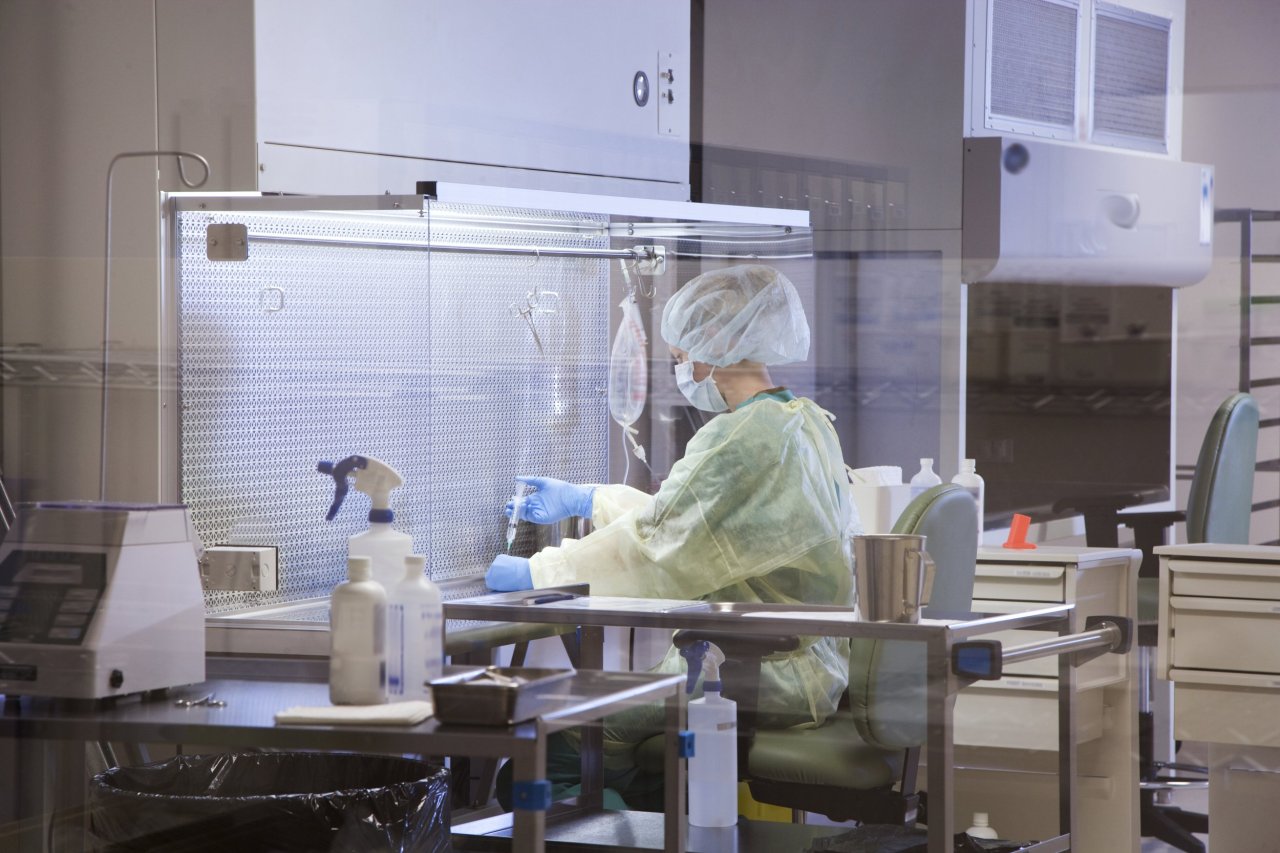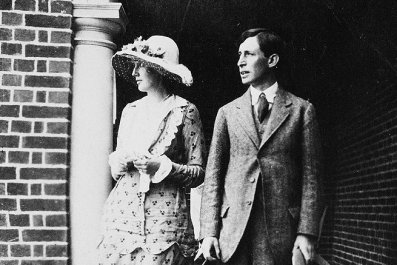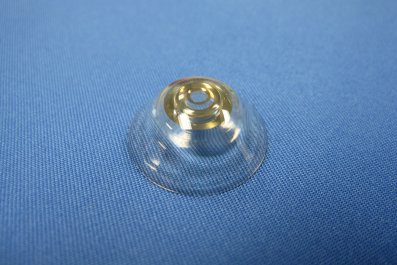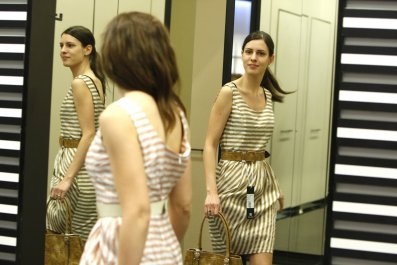Under the cover of night, a man jumped into a garbage container in Groton, Connecticut. He dug until he unearthed a machine that looked half decent, then another, and even pocketed a handful of unbroken beakers. He drove back to his garage, assessed his findings and was pleased. He knew his foraging trip into Pfizer's garbage would be good for business.
This was the birth of American Laboratory Trading (ALT), a used lab equipment company that has become the largest of its kind over the past 15 years. In 2014, ALT shipped refurbished lab equipment to more than 40 countries, invested over $1 million in biotech incubators and even picked up some non-science clients—mainly movie studios needing the perfect mad scientist lab for film scenes (including, for example, the producers of Teenage Mutant Ninja Turtles).
Back in the early 2000s, "there was no real used equipment market" says Jayson Bernstein, chief operating officer of ALT. "Labs didn't close up and have big sales the way they do now. Dumpster diving was literally how the industry started."
Today, as the biotech industry expands—according to the U.S. Department of Commerce, it grew almost 7 percent in the first decade of the century—a growing number of firms like ALT and Heritage Global Partners (which auctions off as-is equipment) are entering the market to fill a rising need for lab equipment, and many independent resellers are utilizing platforms like eBay and Amazon.
But despite this surge in the used lab equipment field, it's still plagued by dirty dealers. Resellers of lab equipment are not unlike used car salesmen in the way they hustle a sale, and more than a few bootstrapping scientists have been burned. Sometimes, machines—especially expensive autoclaves (pressure chambers used to sterilize equipment) and analytic chemistry gear—are simply spit-shined and plugged in to make sure the lights come on by dealers with little scientific or electrical background hoping to flip them for a buck.
The used car types generally prey on smaller labs with limited funding. Outfitting a lab with new equipment can run from $500,000 to several million dollars. The priciest pieces, like the high-performance liquid chromatography machines that are crucial in biochemistry, can go for over $150,000 a pop when new. Some dealers will resell them for around $30,000 with little guarantee they work; others have shipped everything from chipped beakers to unwashed test tubes to small lab managers on a budget.
The now-defunct Firstenberg Machinery Company is one example of the many sellers in the industry with poor business practices. In one case, Micro Constants, a bioanalysis company, purchased an item from Firstenberg in 2012, and when it was never delivered, it sought a refund. "Firstenberg told us a couple times they were working on a refund, but it never occurred. They made arrangements to pay us $1,000 a month, but they never followed through. They did a couple of payments then stopped," Vielka Damond, an accounts receivable executive, told Newsweek. "Then they filed bankruptcy."
In another instance, Firstenberg agreed to buy a generator from the Woodinville Montessori School in Bothell, Washington, for $19,000. Wire payment information was exchanged, contractors were signed, and the generator was shipped out. But when time for payment came, Firstenberg began avoiding the school, emailing it excuses. Eventually, Firstenberg paid the school a measly $2,750, in several installments. When the bankruptcy notice came, Patricia Hunter, Woodinville's chief financial officer, filed for the school to receive its remaining money, "but we haven't gotten anywhere with that." Multiple phone calls and emails to Firstenberg for comment were not answered or returned.
Firstenberg is not the only used lab gear dealer accused of questionable business practices. A lab service employee in the Boston area, who asked to remain anonymous because he regularly deals with resellers, expressed frustration at the ordering process with Cambridge Scientific, a company with positive customer reviews and an impressive A+ score with the Better Business Bureau. He says that the company lists equipment it doesn't yet have, as though it's in stock. In other cases, the item might be in the inventory but is broken. The result is that the gear could take weeks longer to arrive than expected. Bryan Hoffman, a sales manager for Cambridge Scientific, told Newsweek that that this was true in some circumstances, but that the company discloses it in advance. "It is extremely rare that the equipment is refurbished before you order it. We have a limited amount of technicians and quite a few orders."
Despite the numerous dark alleys buyers might find themselves in, small labs can't survive without this market. Used equipment is generally half the price of retail, and when a refurbishment is done properly, it can keep running smoothly for years.
ALT is working to overcome the stigma surrounding used lab equipment dealers. It has hired a team of electricians and scientists, built a refurbishing center and now offers a warranty on everything it sells. It also demands decontamination documents from the previous owner to ensure its safety. "Contamination is the No. 1 problem you run into. Electrical failure is No. 2. The last thing we want is something to blow up or cause a fire," says Bernstein.
Maybe the most important change is that the company is now fastidious about where its used lab equipment comes from. No more garbage container dives. "You can't pick up trash anymore and resell it—people have come to their senses," says Bernstein. Instead, the company targets closing labs for their inventory. "What used to be free 15 years ago is now our No. 1 biggest expense—our inventory," says Bernstein. "Over 50 percent of [our] items come from labs that are closing, another quarter from auctions."
And while picking clean a closed lab may sound depressing, the labs are usually shuttering for a happy reason: They have successfully sold their intellectual property, so experimentation in the lab is no longer necessary.
Looking to give back to the industry that helped it grow, ALT recently became a sponsor for several incubators, organizations that support startups by providing offices, mentorships and aid in developing business plans. Lab Central, in Massachusetts, focuses on providing shared lab space and is used primarily by "venture capitalist–funded companies with real science behind them," founder Johannes Fruehauf explained. Its 28,000-square-foot facility is situated in biotech innovation hub Cambridge, and it acts as an office and lab space for over 100 people. About a fifth of its lab equipment is used, all donated by ALT.
Initially, the people running the co-working space were wary of ALT's offer. Fruehauf says his experiences when buying used lab equipment were awful: "I had been burnt several times and just had a bad impression of the market."
But after visiting ALT and meeting with its engineers, Fruehauf accepted a donation of half a million dollars in lab equipment. In return for his sponsorship, Bernstein can visit the co-working space, hold events and talk to scientists. When a company graduates from Lab Central—meaning it becomes too big, or too well funded, for the center—ALT will offer to help outfit its lab with used equipment.
P. Shannon Pendergrast, founder (along with his two brothers) of Ymir Genomics, works out of Lab Central. "We wrote programs to mine genetic data, and when we decided to test some of our programs, we needed lab space." They also needed an unusual piece of used lab equipment: an ultracentrifuge that costs $40,000 to $50,000 when new. "Another company at Lab Central also needed one, so we went to Johannes and asked, doubting they would purchase it," says Pendergrast.
After a few weeks, the centrifuge showed up, bearing an ALT sticker on the side. "I didn't think this was the kind of place that you could ask for a $40,000 centrifuge and it would just appear. But we were able to get it thanks to the sponsorship," says Pendergrast. Weekly experiments using the equipment have allowed Ymir to jump to the forefront of exosomal biology—the study of small membrane bubbles that body cells shed in an attempt to communicate with each other. It's the hottest new field in biochemistry, according to Pendergrast.
The brothers plan to move into their own space in about a year, and they plan to shop for used equipment. "I know companies that are very well funded, and they always take a look at the used equipment first," Pendergrast says of his next office. "If there's a piece of equipment that is not too old for the right price, you certainly consider it strongly, as long as you trust the reseller."
Trust has been key to cleaning up the dirty business, but Fruehauf cautions that few resellers are as diligent and trustworthy as Bernstein. "A buyer of used lab equipment has to look very, very closely at who is selling it to him, not just what they are buying. They have to avoid that used car dealer salesperson. You can be burned very easily. I was."
February 16, 2015: This page previously carried an incorrect version of this article.






















